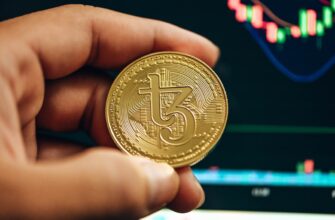- Introduction: Cryptocurrency Adoption in Malaysia
- Malaysia’s Cryptocurrency Regulatory Framework
- Top Cryptocurrency Exchanges in Malaysia
- How to Buy Cryptocurrency in Malaysia: Step-by-Step
- Tax Implications for Crypto Investors
- Security Best Practices for Malaysian Holders
- The Future of Cryptocurrency in Malaysia
- Frequently Asked Questions (FAQs)
- Is cryptocurrency legal in Malaysia?
- Which cryptocurrencies can Malaysians legally trade?
- Do I pay taxes on cryptocurrency profits?
- Can I use cryptocurrency for daily purchases?
- What’s the minimum investment amount?
- How does Malaysia regulate crypto scams?
Introduction: Cryptocurrency Adoption in Malaysia
Cryptocurrency in Malaysia has evolved from a niche interest to a regulated financial frontier, with growing adoption among investors and businesses. As Southeast Asia’s third-largest economy, Malaysia offers a unique landscape where traditional finance intersects with digital innovation. This guide explores the regulatory framework, trading platforms, tax implications, and security practices shaping Malaysia’s crypto ecosystem – essential knowledge for both new and experienced investors navigating this dynamic market.
Malaysia’s Cryptocurrency Regulatory Framework
The Securities Commission Malaysia (SC) oversees digital assets under the Capital Markets and Services Order 2019. Key regulations include:
- Mandatory Registration: All cryptocurrency exchanges must register as Digital Asset Exchange (DAX) operators
- Token Classification: Digital assets categorized as securities or utility tokens with distinct compliance requirements
- Investor Protections: KYC/AML procedures enforced for all transactions
- Bank Negara Malaysia (BNM) monitors crypto’s impact on financial stability while prohibiting its use as legal tender
Top Cryptocurrency Exchanges in Malaysia
Approved platforms for Malaysian traders:
- Luno Malaysia: SC-licensed, offers BTC, ETH, XRP with instant MYR deposits
- Tokenize: Local exchange supporting 20+ coins and MYR pairs
- MX Global: First Shariah-compliant platform approved by SC
- Binance: Accessible via P2P trading with MYR gateways
How to Buy Cryptocurrency in Malaysia: Step-by-Step
- Select a SC-registered exchange
- Complete identity verification (KYC)
- Deposit MYR via bank transfer or e-wallets (Boost, Touch ‘n Go)
- Place buy orders for preferred cryptocurrencies
- Transfer funds to private wallet for long-term storage
Tax Implications for Crypto Investors
Malaysia’s Inland Revenue Board (LHDN) guidelines:
- No capital gains tax on crypto investments
- Trading profits taxed as income if deemed business activity
- Mining income subject to income tax
- Businesses accepting crypto must record transactions at market value
Security Best Practices for Malaysian Holders
Protect your assets with these measures:
- Enable two-factor authentication (2FA) on all exchange accounts
- Use hardware wallets like Ledger for significant holdings
- Verify website URLs to avoid phishing scams
- Never share private keys or recovery phrases
- Monitor SC’s Investor Alert List for unauthorized platforms
The Future of Cryptocurrency in Malaysia
Emerging trends include:
- BNM’s exploration of Central Bank Digital Currency (CBDC)
- Growing institutional adoption through regulated custodial services
- Expansion of blockchain use cases in Islamic finance
- Integration with fintech services like digital banking licenses
Frequently Asked Questions (FAQs)
Is cryptocurrency legal in Malaysia?
Yes, cryptocurrency is legal and regulated by the Securities Commission. However, it’s not recognized as legal tender.
Which cryptocurrencies can Malaysians legally trade?
SC-approved exchanges offer major coins like Bitcoin (BTC), Ethereum (ETH), and Ripple (XRP). Always verify an exchange’s registration status before trading.
Do I pay taxes on cryptocurrency profits?
Capital gains aren’t taxed, but frequent trading profits may be considered taxable business income. Mining rewards are always taxable.
Can I use cryptocurrency for daily purchases?
While not widespread, select merchants accept crypto via payment processors. Major retailers typically prefer traditional payment methods.
What’s the minimum investment amount?
Platforms like Luno allow investments from RM1, making crypto accessible to beginners.
How does Malaysia regulate crypto scams?
The SC actively blacklists unauthorized platforms and pursues legal action against fraudulent schemes through its Enforcement Division.
Malaysia’s balanced regulatory approach positions it as a growing crypto hub in ASEAN. By combining investor protection with innovation-friendly policies, the nation offers a structured pathway for responsible cryptocurrency participation. Always consult SC guidelines and licensed financial advisors before investing.








